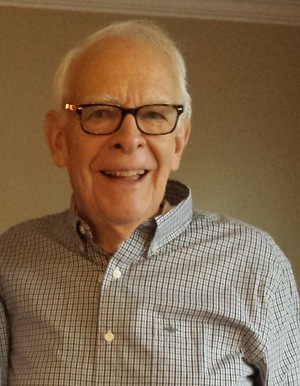
We first met John Drysdale in 1997, at the beginning of a long (but finally successful) struggle to establish the American Sociological Association Section on the History of Sociology (today the History of Sociology and Social Thought). The meeting came about, as did many things in John’s long and happy marriage, through his wife Susan Hoecker-Drysdale. She had reached out to recruit to our fledgling effort, and we knew her for her important work Harriet Martineau, First Woman Sociologist. John, like Susan, proved to be an invaluable supporter—deeply knowledgeable about the history of sociology, open to new interpretations, and committed to producing a history of sociology that included marginalized and overlooked scholars, especially women and African American sociologists in the US.
John brought to the effort of creating a formal organization for the study of the history of sociology not only his historical expertise, but also his years of experience chairing the Department of Sociology and Anthropology at Concordia University in Quebec. He also brought his particular personal presence, which had features sometimes called “command presence,” though John’s came not from any military service but from a deep belief in the power of rational discourse, and a commitment to practicing that belief through the way he conducted himself in public debate. Though he was aided in public settings by his physical attributes—he was a tall man with a deep voice—he never in all the years we shared public meeting spaces took advantage of those attributes simply to speak more loudly than another person. He was unfailingly patient and polite, both as a listener and a speaker who was careful never to overstep his allotted time. He rested his case repeatedly on the power of logic, of the better argument.
John was born in La Porte, Texas in 1937, attended Millsaps College in Jackson, Mississippi and earned his doctorate in sociology at Louisiana State University in 1966. His dissertation was “The Social Context of Academic Freedom.” In his acknowledgements to that work, he concluded with a comment, so typical of his easy touch, that the people he just thanked for all their help “should not be held responsible for any errors, trifles, or nonsense that remain in the presentation of this study.” In the dissertation, John moved from an “analysis of academic organization” to argue that “academic freedom is a function of academic organization,” and then to press “the relevance of formal organization” to the issue of “academic freedom.” In the present moment of tense discussion over the place of academic freedom in the US, John’s 1966 analysis of the nature of “academic freedom” remains relevant. It is today, as it was then, an insightful description of the factors that need to be taken into account in such a discussion, and of the way the norms invoked by the term “academic freedom” vary with the speaker.
After receiving his doctorate, John taught at the University of Kentucky and then, in 1971, began his career at Concordia, which continued through 1997. While there he not only served several terms as chair of the department, but also served as an organizer of the Concordia University Faculty Association union. John also served as the Director of the PhD in Humanities Program, the Max Weber Scholar at the Lonergan University College, and worked on curriculum reform. During sabbatical leave appointments in those years, John did research in Munich, Berlin, Oxford, and Harvard Universities. Following retirement from Concordia in 1997, John taught at the University of Iowa and the American University in Washington, D.C., where he both taught at and chaired the sociology department from 2007 to 2011. And it was, of course, during this last appointment that John served as president of the District of Columbia Sociological Society.
John’s major research interest was Max Weber’s social theory, about which he published a series of thoughtful articles. One that suggests the continuity in his thought from his graduate school days to his later scholarship is a 2007 chapter, “Weber on Objectivity: Advocate or Critic,” which appears as the lead chapter in Laurence McFalls’ edited collection Weber’s Objectivity Reconsidered by the University of Toronto Press. In that chapter, John returns to themes which concerned him throughout his academic life, especially a concern with the relationship between objectivity and academic freedom.
Following his death on January 14, 2022, after several years of declining health, his family wrote:
To the end John remained resolutely optimistic about the future of humanity. His optimism was rooted in the legacies of the European Enlightenment, updated for our century. He believed that the Enlightenment consisted, not of dogmas or rosy platitudes, but as a set of existential global challenges. At the interpersonal level the challenge is to enlarge the capacity for human understanding and empathy for all people regardless of differences in station or status. At the global level the great challenge is to take seriously the perspective of the entirety of humanity and the viability of life on earth. … At its best, education leads to the enlargement of perspective to the level of humanity in its entirety.
He is survived by wife Susan, son David, daughter-in-law Tracy, and two grandchildren, Nicole and Nathan.
What impressed us most in interactions with John over the years was how much he tried to live his values—as he did during his time at American University during a tense moment in the life of the sociology department. Sandra Linden, a long-time, highly regarded, past department administrator, remembers John as “a splendid academic officer, accurate on operational details, aware of larger issues confronting the department, always able to arbitrate and mediate among varying points of view, keeping both an open door and an open mind as he dealt with differences of opinion and personality within the department; and as a person, truly unfailing kind and generous.”
